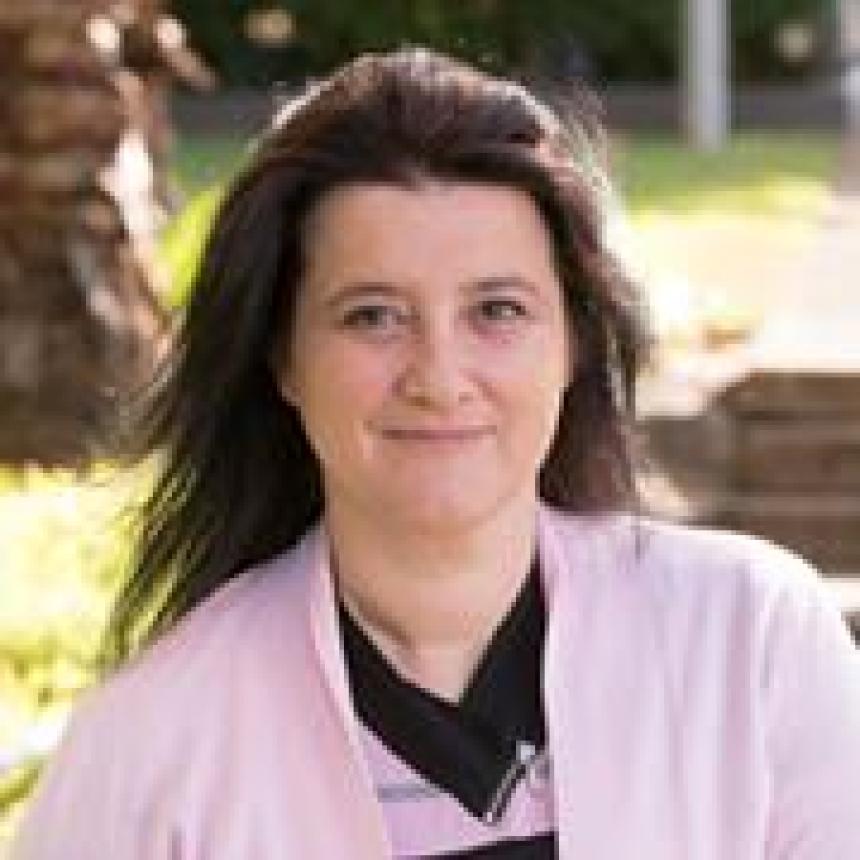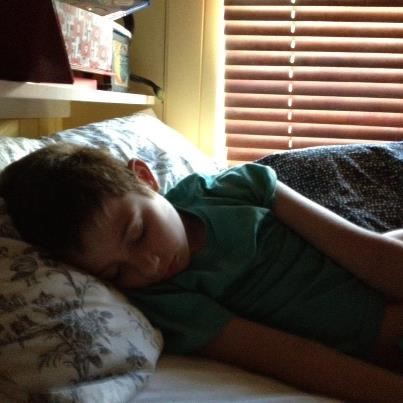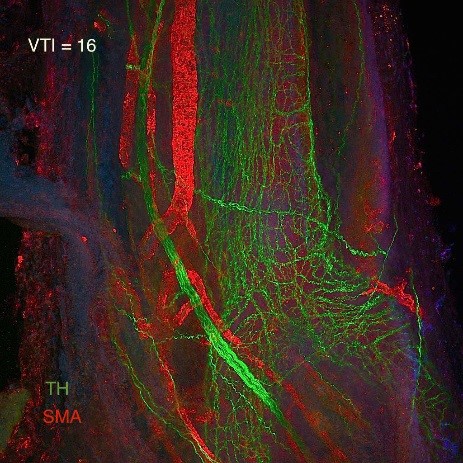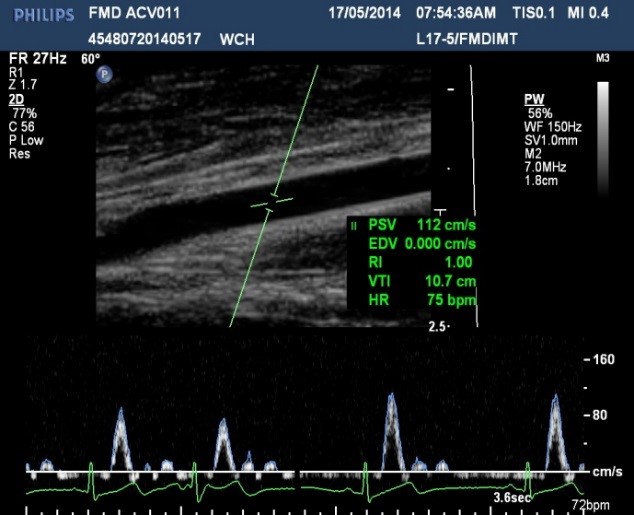
Research Interests
Autonomic Nervous System Cardiovascular Medicine and Haematology Cardiovascular System & Hematology Immunology Neurosciences Paediatrics Paediatrics and Reproductive Medicine Child and Adolescent Health Early Origins of Health Neuroscience, Behaviour and Brain Health Pregnancy and BirthDr Anna Kontos
School of Medicine
College of Health
Dr Anna Kontos BBsc, BSc Hons, PhD- University of Adelaide, Adelaide. Robinson Research Institute -Deputy Director - Paediatric Sleep Disorders Research GroupMedical Scientist - With Expertise in:Cardiovascular developmentPaediatric Sleep DisordersSleep Disordered BreathingBrown Adipose Tissue Sleep Energy Metabolism Lipid Metabolism Thermal Regulation



Research Scientist – Integrated Physiology of Sleep Disordered Breathing in Child Development
I am a medical scientist investigating the impact of sleep disordered breathing on physiology in children during development. In particular I'm interested in integrated changes that occur in the nervous system (autonomic nervous system), cardiovascular system, microbiome and immune systems and the underlying differences in physiology that predispose individuals to the disorder in childhood. My work also investigates the role that upper airway muscle tone, dental morphology and allergens plays in the disorder and whether treatment reverses or reduces any pathological consequence of habitual snoring during sleep.
Paediatric Sleep Disorder Research Group
Professor Declan Kennedy and Dr Anna Kontos
Projects available
Location: All studies are based at the Women’s and Children’s Hospital and Robinson Research Institute (55 King William Road, North Adelaide)
Special requirements: Police Clearance, DCSI clearance
Brief description of research area
Our aim is to understand the impact of bad sleep on the health of the developing child. A large proportion of the population both adults and children suffer from sleep disorders. Our multidisciplinary team of researchers primarily focuses on the effects of sleep disordered breathing (SDB), which is commonly known as sleep apnoea and its effects on neurocognition, cardiovascular development, immune system, metabolic and nervous system function. SDB in children is common with as many as 10 % of children confirmed to snore on a regular basis. A spectrum disorder, SDB ranges from primary snoring (snoring more than 3 time a week, but no evidence of obstruction and no change in blood oxygen concentration), to the more severe obstructive sleep apnoea (snoring, obstructive events known as apnoea’s and hypopnea’s and reduction in blood oxygen levels and increase in carbon dioxide).
We are also interested in understanding the risk factors that predispose children to the disorder.
Research Project 1
Supervisor: Dr Anna Kontos
Title: Understanding the integrity of the airway muscles in paediatric sleep disordered breathing – a histological study
Project description: Sleep disordered breathing (habitual snoring to obstructive sleep apnoea) is common in children and is associated with reduced sleep quality. Children with SDB have learning and behavioural problems and there is preliminary evidence that the disorder all affects the development of the cardiovascular system. Some functional tests suggest that the airway muscles of children and adults with the disorder (sleep apnoea) have reduced airway patency. However only one study has addressed changes in the airway muscle structure directly in adults and there are no studies in children. This study will look at the structural changes in airway muscle from the airway of children treated with tonsillectomy at the Women’s and Children’s Hospital. Tonsil removal results in some residual airway muscle removal. This study will use histological evaluation to determine structural changes in muscle of the upper airway and its relationship to SBD severity determined from parental report and polysomnography.
Research Project 2
Supervisors: Dr Anna Kontos and Tara Crawford
Title: Determining the effects of paediatric SDB on metabolism and the endocrine system
Project description: Sleep disordered breathing effects multiple physiological processes including the metabolic and humoral pathways. Parents of children with SDB are more likely to report that their child on top of snoring, also sweat excessively, grind their teeth, move a lot in their sleep and wake up tired. This project will look at changes in stress, metabolic and humoral metabolites in urine samples from children with SDB compared to children who do not snore before and after sleep and compare changes with parents report of their child’s sleep and the results from polysomnography. We have collected more than 80 samples from children with and without SDB. Students will learn standard laboratory skills as part of their project.
Projects available for: Third Year / Honours
Research project start: Semester 1 and 2
Research Project 3
Supervisors: A/Prof Michael Stark and Dr Anna Kontos
Title: Sleep Disordered Breathing in Pregnancy – does it affect maternal and infant health?
Project description: Sleep disordered breathing (SDB) is common and associated with reduced quality of life, increased morbidity and increased financial burden both to the sufferer and the community at large. Yet the impact of this same disorder during pregnancy receives little to no investigation both in Australia and worldwide. For the first time in Australia’s history the age of first time mothers has reached the third decade and more concerning is that almost half (46%) of new mothers are overweight or obese when they began their pregnancy. This is unprecedented in human evolution and therefore its effect on maternal and fetal health requires investigation. There is preliminary evidence that SDB in pregnancy is associated with worse maternal health and an increased risk of birth complications. This study will develop the Pregnancy Sleep Questionnaire which will identify women with pathological levels of the disorder early in pregnancy. It will use physiological measurement (polysomnography, ultrasound vascular measures) from the mother and tissue/blood samples from both mother and their child to corroborate the questionnaire outcomes. The aim is to develop a tool that will be incorporated into early antenatal care which will identify women with SDB that are at high risk of maternal and delivery complications.
Research Project 4
Supervisor: Dr Anna Kontos and Priscilla Vokolos
Title: Investigating the effect of SDB on vascular health?
Project description: Adults with sleep disordered breathing (SDB - habitual snoring/sleep apnoea) are at increased risk of a cardiovascular event early in life. SDB is also common in children with as many as 10% of children reported to snore on a regular basis. Most children remain undiagnosed and therefore untreated. Whether the cardiovascular system in children with SDB is also affected is less well understood. This project looks at the impact of habitual snoring and sleep apnoea on vascular function and structure in children with sleep disordered breathing. Students will be working directly on human tissue (tonsil) from patients who have had surgery at the Women’s and Children’s Hospital. We will be looking at the relationship between SDB severity and its effects on blood vessel development. Understanding the pathways that may lead to vascular disease may provide new therapies in the future.
Projects available for: Third Year / Honours
Research project start: Semester 1 and 2
| Date | Position | Institution name |
|---|---|---|
| 2019 - ongoing | Affiliate Senior Lecturer | University of Adelaide |
| 2018 - ongoing | MS McLeod Postdoctoral Research Fellow | Women's and Children's Hospital |
| Language | Competency |
|---|---|
| Greek, Modern (1453-) | Can read, write, speak, understand spoken and peer review |
| Date | Institution name | Country | Title |
|---|---|---|---|
| 2012 - 2017 | The University of Adelaide | Australia | PhD |
| 2010 - 2010 | Flinders University | Australia | Bachelor of Science (School of Medicine) Honours |
| 2007 - 2009 | Flinders University | Australia | Bachelor of Behavioural Science (Neuroscience and Psychology Majors) |
| Year | Citation |
|---|---|
| 2016 | Kontos, A., Schwarz, Q., Green, R., Wabnitz, D., Martin, J., Xu, X., . . . Kennedy, D. (2016). Is sleep disordered breathing in children a precursor of cardiovascular disease?. Poster session presented at the meeting of JOURNAL OF SLEEP RESEARCH. Bologna, ITALY: WILEY-BLACKWELL. |
| 2016 | Carlson-Jones, J., Kontos, A., Paterson, J., Smith, R., Dann, L., Speck, P., . . . Mitchell, J. (2016). FLOW CYTOMETRIC ENUMERATION OF BACTERIAL AND VIRUS-LIKE PARTICLE POPULATIONS IN THE HUMAN ORAL CAVITY PRE AND POST SLEEP. Poster session presented at the meeting of JOURNAL OF SLEEP RESEARCH. WILEY-BLACKWELL. |
| 2016 | Yap, B., Kontos, A., Kennedy, D., Sampson, W., & Dreyer, C. (2016). DENTOFACIAL MORPHOLOGY IN CHILDREN WITH AND WITHOUT SLEEP DISORDERED BREATHING. Poster session presented at the meeting of JOURNAL OF SLEEP RESEARCH. WILEY-BLACKWELL. |
| 2016 | Kontos, A., Schwarz, Q., Green, R., Wabnitz, D., Martin, J., Lushington, K., . . . Kennedy, D. (2016). RELATIONSHIP BETWEEN VASCULAR RESISTANCE AND SYMPATHETIC NERVE FIBRE DENSITY IN CHILDREN WITH SLEEP DISORDERED BREATHING. Poster session presented at the meeting of JOURNAL OF SLEEP RESEARCH. WILEY-BLACKWELL. |
| Date | Role | Research Topic | Location | Program | Supervision Type | Student Load | Student Name |
|---|---|---|---|---|---|---|---|
| 2020 - ongoing | Principal Supervisor | Upper airway muscle integrity in children with Sleep Disordered Breathing | The University of Adelaide | Third Year Research Project | Other | Full Time | Victoria Chrisanthopoulos |
| 2020 - ongoing | Co-Supervisor | Sleep Disordered Breathing and vascular integrity in pregnancy | The University of Adelaide | Third Year Research Project | Other | Full Time | Celine Taneshia |
| 2020 - ongoing | Principal Supervisor | Arterial structural changes in blood vessels of children with Sleep Disordered Breathing | The University of Adelaide | Health and Medical Science - Paediatrics | Honours | Full Time | Priscilla Vokolos |
| 2016 - 2018 | Co-Supervisor | Motor endplate number in upper airway muscle tissue in children with upper airway obstruction (UAO) | The University of Adelaide | - | Honours | Part Time | Charmaine O'Reilly |
| Date | Role | Committee | Institution | Country |
|---|---|---|---|---|
| 2019 - 2020 | Representative | St George College Board | St George College | Australia |
| 2018 - ongoing | Member | New Women’s and Children’s Hospital Development - Research Committee, Education and Research Group. | Women's and Children''s Hospital | Australia |
| Date | Topic | Presented at | Institution | Country |
|---|---|---|---|---|
| 2019 - ongoing | Is Sleep Disordered Breathing in childhood a modifiable risk factor for early vascular aging (EVA)? | Adelaide Sleep Retreat 2019 | Adelaide Sleep Retreat | - |
| 2017 - ongoing | The influence of age, body habitus, sex, time of night and sleep stage on heart rate variability in normal health children | World Sleep Congress 2017 | World Sleep Society | Czech Republic |
| 2017 - ongoing | Cardiovascular, autonomic function and inflammation in children with sleep disordered breathing | Centre for Neuroscience | Flinders University, Adelaide | Australia |
| 2016 - ongoing | Is sleep disordered breathing in children a precursor of cardiovascular disease? | Sleep Down Under Conference. 2016 | Australasian Sleep Association | Australia |
| 2016 - ongoing | Increased resting brachial artery blood flow velocity associated with increased sympathetic nerve fiber density on the dorsal lingual artery (Tonsil) in children with sleep disordered breathing | International Pediatric Sleep Congress 2016 | International Pediatric Sleep Society | Taiwan, Province of China |
| 2016 - ongoing | Increased aortic blood flow velocity and inflammation in children with sleep disordered breathing | International Pediatric Sleep Congress (IPSA 2016) | International Pediatric Sleep Society | Taiwan, Province of China |
| 2014 - ongoing | Delayed brachial artery dilation response and increased resting blood flow velocity in young children with mild sleep-disordered breathing | Sleep Down Under Conference 2015 | Australasian Sleep Association | - |
| 2011 - ongoing | Zucker obese (fa/fa) rats, compared to normal rats, have fewer ultradian episodes of brown adipose tissue (BAT) thermogenesis. | - | Australian Neuroscience Society/Australian Physiology Society Conference Sydney | Australia |




